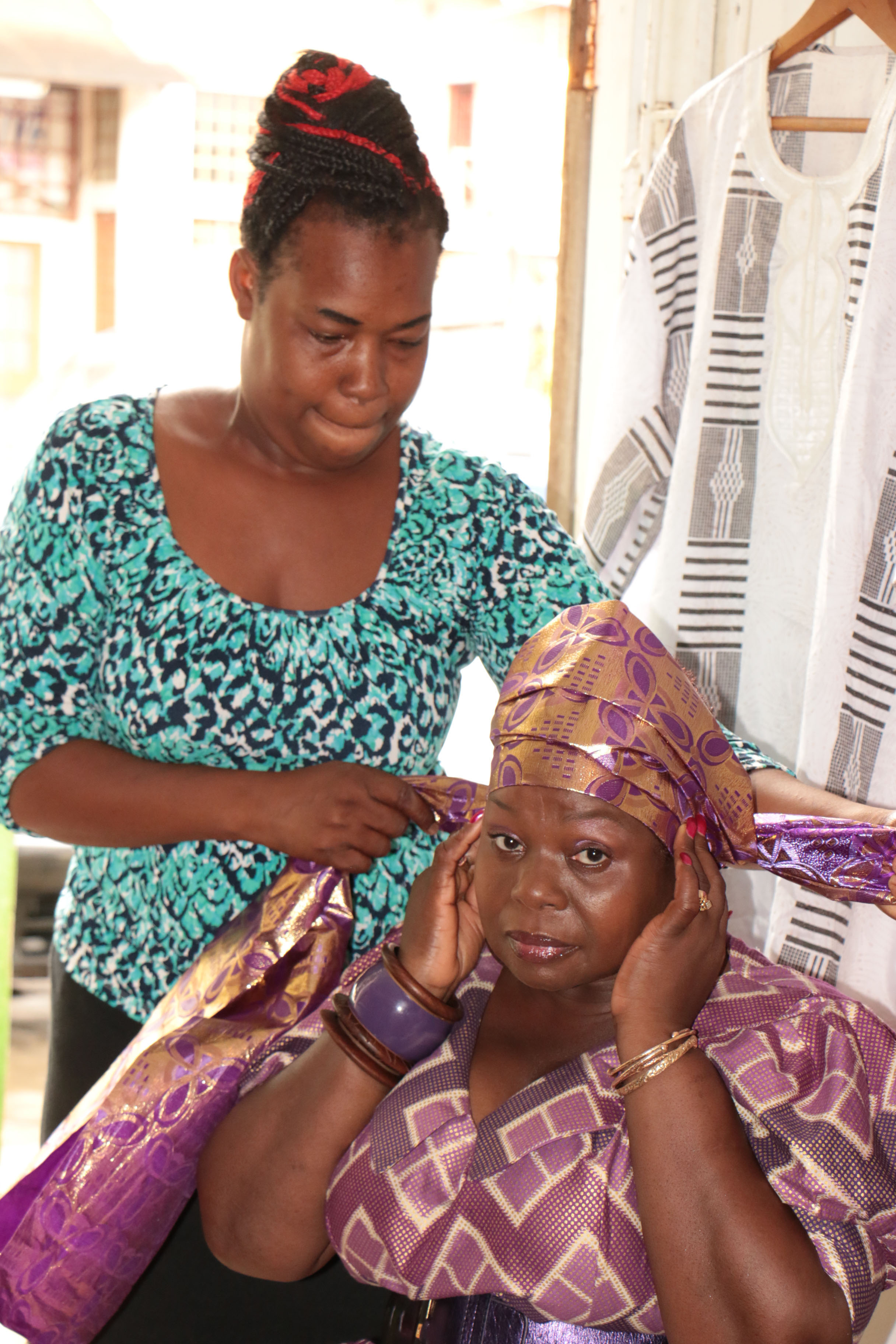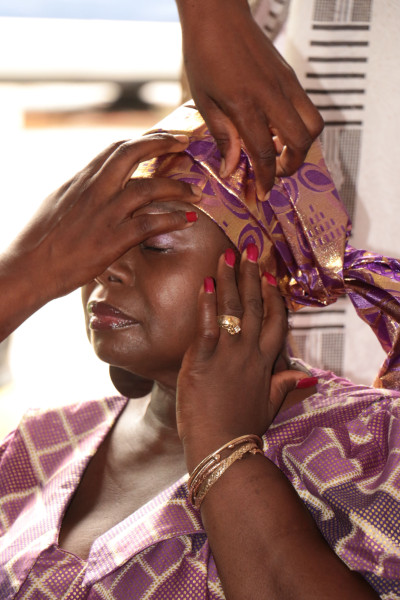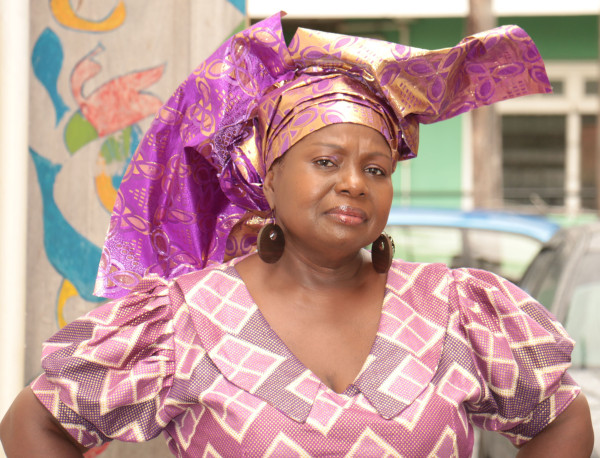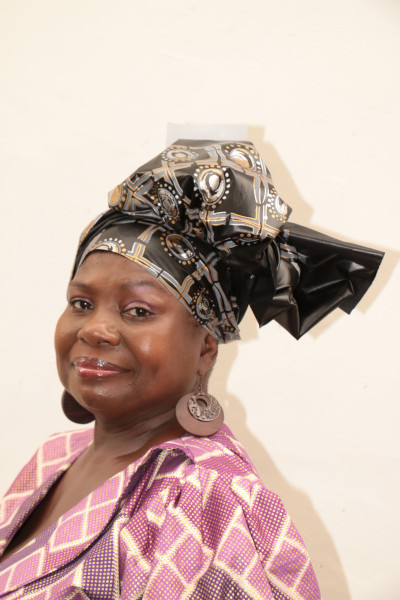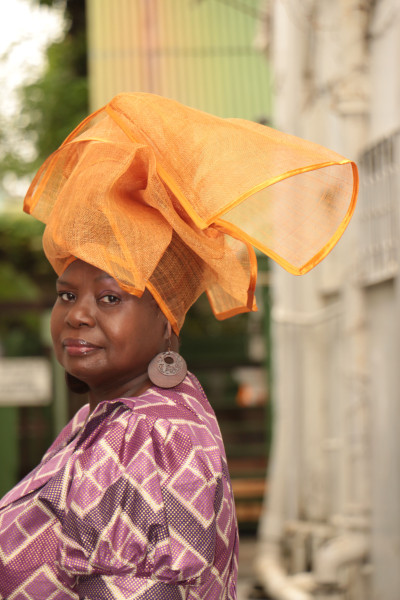By Oluatoyin Williams
It might be seasonal, but African head wraps are very much a going thing in Guyana even though many who step out in the headgear are more enamoured of the fashion than of the culture and tradition.
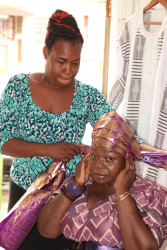
During the month of August, and particularly on August 1 when Emancipation Day is celebrated, Guyanese can be seen sporting their African wear, complete with the head wraps.
This headgear is not only worn by women in many African countries but is also popular among African Americans.
“You know, these head wraps have meaning and I don’t want to look silly because I don’t know the meaning,” Anetha said, and had she not been coaxed she might have ended the interview there.
It seems that many persons who create African head wraps in Guyana are not keen on talking on the subject, because they do not know the historical/cultural meaning attached.
In the case of Anetha, who is also the owner of Anita’s Elegance Africa Boutique on Charlotte Street, and learnt the art of African head-wrapping in London, many times the wraps are improvised and may have no traditional meaning attached to them.
When one sits in front of Lana Rutherford, who is employed by Anetha specifically to do African head wraps, she enquires about the function they want to attend and then wraps to suit.
Lifestyle saw her in action recently and the deftness of her hands was amazing as she quickly folded the cloth, and in a jiffy, the model was sitting with an elegant head wrap perched on her head. She was taught the art by Anetha, who wrapped heads in London and Georgetown for over 20 years, but since she was diagnosed with Lupus, Lana moved to the front and has been handling herself well.
Even as rain pelted down outside, Lana moved from cloth to cloth, all bought from authentic African stores in London, Anetha said, creating style, elegance, royalty and beauty all rolled in one, sitting on the head of her boss who performed the duty of model.
Anetha recalled that while in London she had an African friend who introduced her to the head wraps as at the time she was designing African clothing but with no accompanying head wrap.
“She said you either use the same fabric that they are wearing or you do like the Nigerians and use a different cloth to wrap,” Anetha recalled, adding that it was that friend who taught her how to wrap.
Pointing to various pieces of cloth packed neatly on a shelf, Anetha boasted that they all originated in Nigeria.
“But you see what we do, we just make up our own styles in head-wrapping. We don’t know the in-depth meaning because you see with these sort of Nigerian head wraps there are ones to tell when you are single; there are ones to tell you this woman is married; there are ones that tell you are a widow; there are ones to say you are a virgin,” Anetha said.
Her daughter is married to a Nigerian and his mother has indicated that the younger generation is unaware of the significance as the older generation did not pass the tradition down.
And while Nigerians would use any cloth to wrap their heads, Anetha said Ghanaians—she has visited Ghana—would mostly use the cloth of the outfit they are wearing to wrap their heads.
“But not so with Nigerians, they are mad with fashion and if you go to a Nigerian function you will get eye-turn with all these different colours blending in,” she said.
While Lana and Anetha charge $1,000 per head wrap (appointments must be made) they revealed that the wrap can be slipped off, kept in the box and worn again.
Anetha Daniels is also a fashion designer specializing in African-wear.
